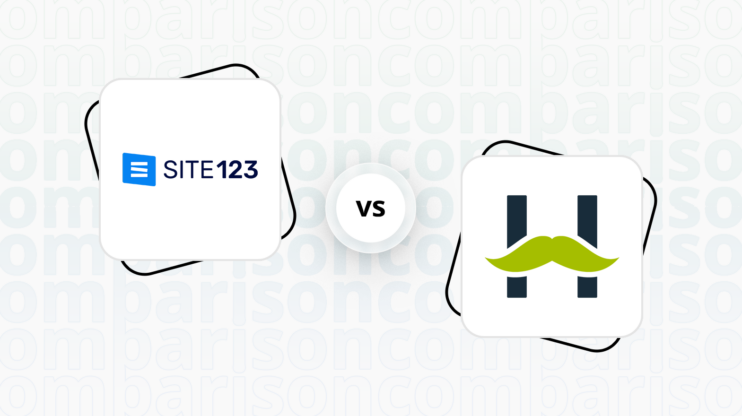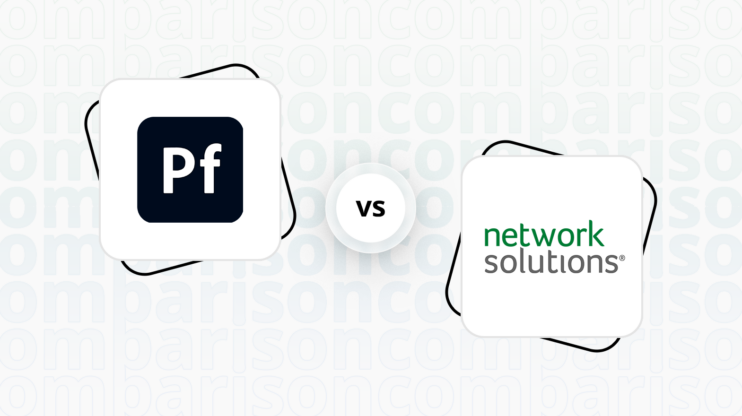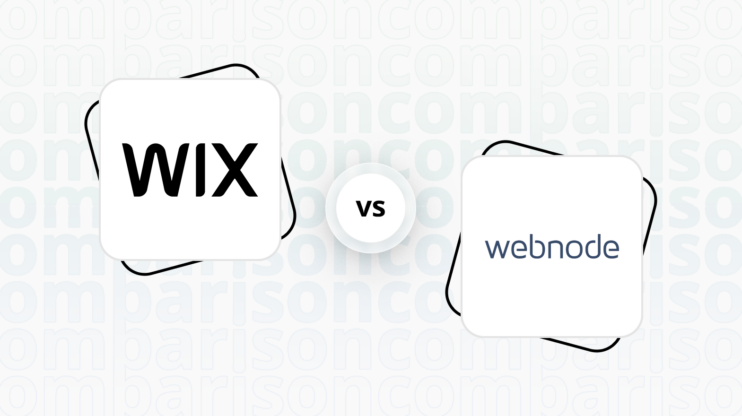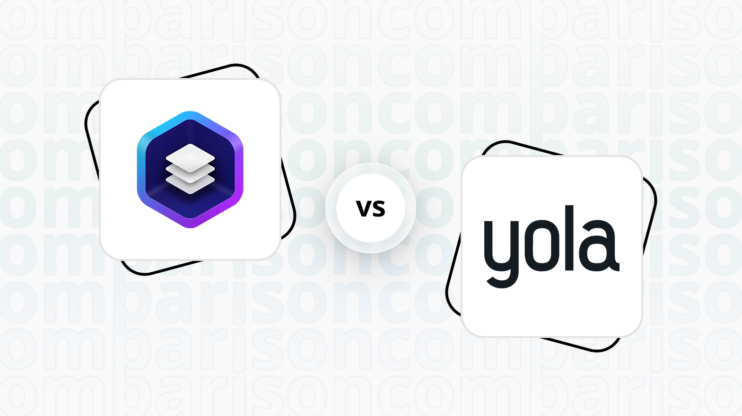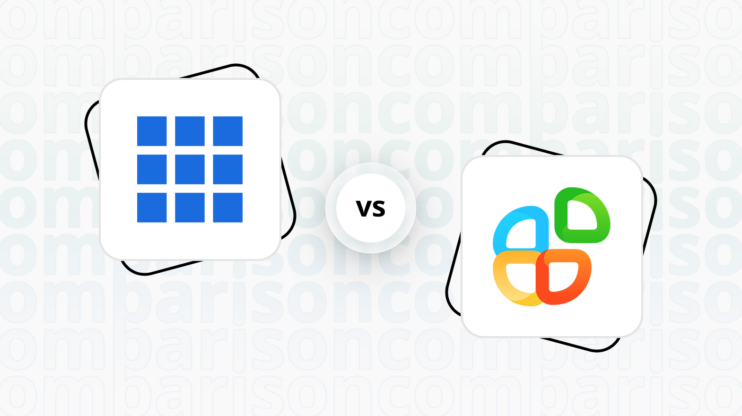Webnode vs Jigsy: Final verdict
Webnode and Jigsy both offer unique features, but they cater to different user needs and preferences.
-
Webnode (Overall Grade: 6.5/10)
is a user-friendly website builder ideal for beginners who want to create a simple website quickly and easily. It offers a variety of customizable templates, robust ecommerce tools, and comprehensive support resources. When comparing Webnode vs Jigsy, Webnode stands out for its ease of use, design functionalities, and superior customer support, making it a solid choice for those seeking a straightforward and reliable website building experience. -
Jigsy (Overall Grade: 4.4/10)
provides a versatile platform with a range of templates and customization options. It is suitable for users looking to create professional-looking websites without coding knowledge. However, in the Webnode vs Jigsy comparison, Jigsy falls short in terms of ease of use, ecommerce capabilities, and customer support. While it offers essential features and integrations, it may not be the best choice for users seeking advanced functionalities and a seamless user experience.

|

|
|
|---|---|---|
|
Design functionalities & templates |
7.1 |
6.4 |
|
Ease of use |
8.0 |
6.5 |
|
Ecommerce |
6.3 |
3.4 |
|
Website Editors |
7.3 |
5.7 |
|
Product testing options |
5.3 |
5.3 |
|
Price |
7.7 |
7.6 |
|
Hosting quality |
6.3 |
4.5 |
|
Website speed optimization |
6.1 |
5.9 |
|
Plugins and integrations |
6.8 |
5.0 |
|
Marketing features |
5.5 |
3.8 |
|
Customer support |
5.3 |
4.3 |
|
Security |
7.7 |
0.0 |
|
AI capabilities |
5.3 |
0.0 |
|
User Management |
6.9 |
0.0 |
Which one is the best for ecommerce: Webnode or Jigsy?
 6.3
6.3
 3.4
3.4
Verdict
: Webnode is a more comprehensive ecommerce solution compared to Jigsy, offering a wider range of features and customization options. Jigsy may be suitable for simpler ecommerce needs, but its reliance on third-party integrations and limited customization capabilities make it less ideal for more complex online stores.
-
Webnode
: Webnode provides a robust set of ecommerce tools, making it a better choice for users looking to build a comprehensive online store. It offers features such as shipping options, payment gateway integrations, order management, and coupons and discounts. Webnode’s ecommerce-specific templates and extensive product page customization options contribute to a seamless and optimized shopping experience. Its support for various payment gateways, including PayPal and Stripe, further enhances its ecommerce capabilities. Best For Ecommerce score: 6.3. -
Jigsy
: Jigsy, while versatile, relies heavily on third-party integrations and lacks the depth of ecommerce features found in Webnode. It offers basic ecommerce functionalities such as PayPal integration, Ecwid product listing, and eBay product listing. However, Jigsy does not offer ecommerce-specific templates and has very limited product page customization possibilities. Its payment processing options are also limited, with no built-in payment gateway and no POS capabilities. Best For Ecommerce score: 3.4.
Which one is the best for informational and business websites?
 7.2
7.2
 6.5
6.5
Verdict
: When it comes to creating informational business websites, Webnode outperforms Jigsy with a higher score and more user-friendly features.
-
Webnode
: Scoring 7.2, Webnode is an excellent choice for beginners looking to create a simple, professional website quickly. Its drag-and-drop interface, customizable templates, and comprehensive learning resources make it highly accessible. Webnode also offers reliable hosting and robust security features, ensuring a smooth and secure online presence. -
Jigsy
: With a score of 6.5, Jigsy provides a versatile platform with a range of templates and customization options. However, it falls short in ease of use and modernity compared to Webnode. While Jigsy includes essential integrations and e-commerce functionalities, its limited storage options and lack of detailed security measures make it less ideal for informational business websites.
Webnode vs Jigsy: Detailed comparison
Design functionalities & templates
Design FunctionalitiesRepresents how well each platform allows for creative design and customization of websites.Score Components:
- Template Variety (30%): Range and quality of design templates.
- Customization (30%): Flexibility and options for design alterations.
- User Interface (20%): Ease and intuitiveness of the design process.
- Responsiveness (10%): Adaptability to different devices and screen sizes.
- Innovation (10%): Unique design features and tools.
 7.1
7.1
 6.4
6.4
🏆
Winner: Webnode.
Webnode scores higher in design functionalities and templates, making it a better choice for users seeking a balance between ease of use and customization.
Webnode offers a variety of website templates designed for different purposes, from business and portfolios to restaurants and travel. These templates are customizable and responsive, ensuring they display well on any device. While an exact number isn’t available, Webnode provides a wide selection to cater to diverse website needs.
Jigsy offers a diverse range of templates and designs, catering to various needs and preferences. Users can choose from a wide variety of themes, ranging from simple to more complex, ensuring there’s something for every type of website. With Jigsy, users have access to a multitude of customization options, allowing for a high degree of personalization and uniqueness in their website creation.
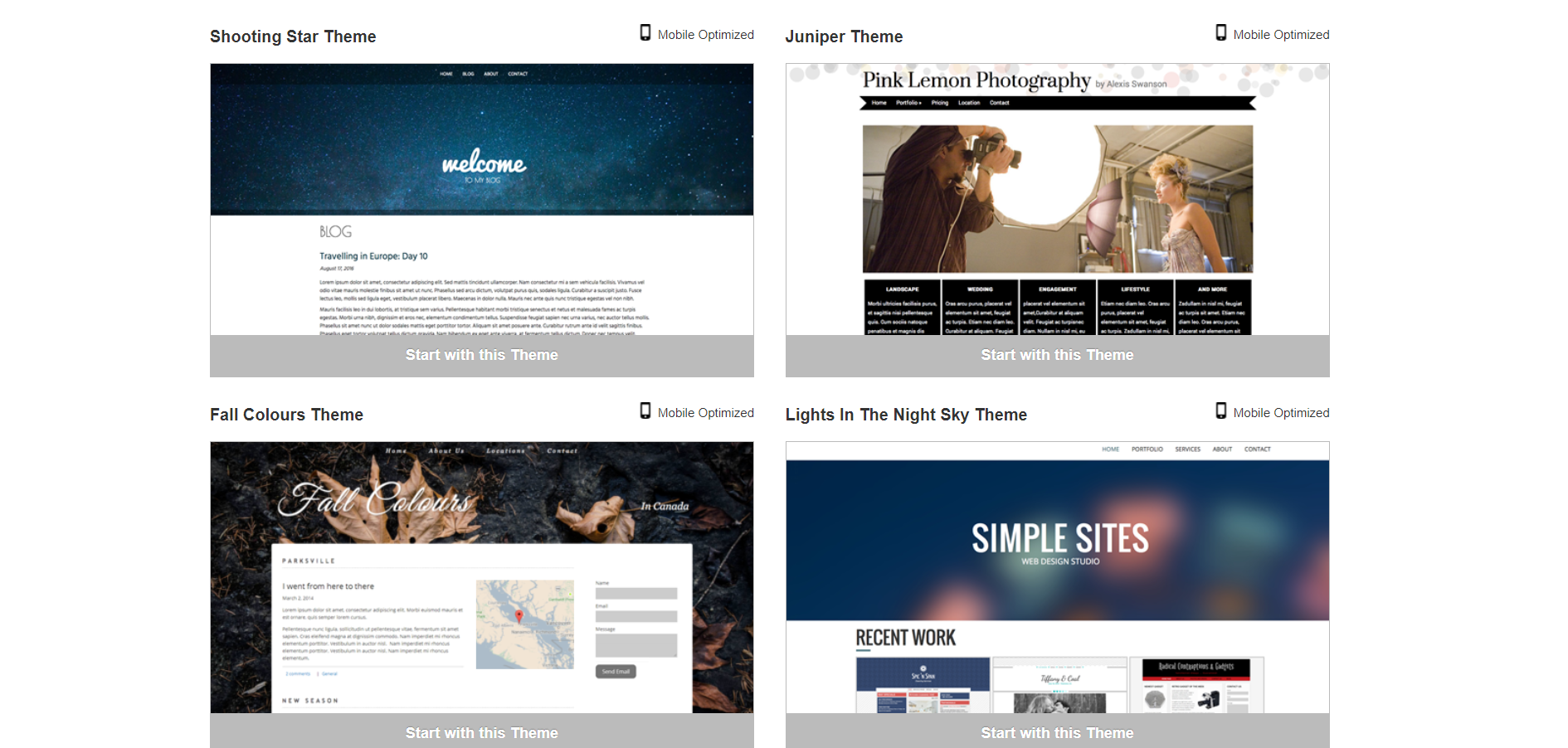
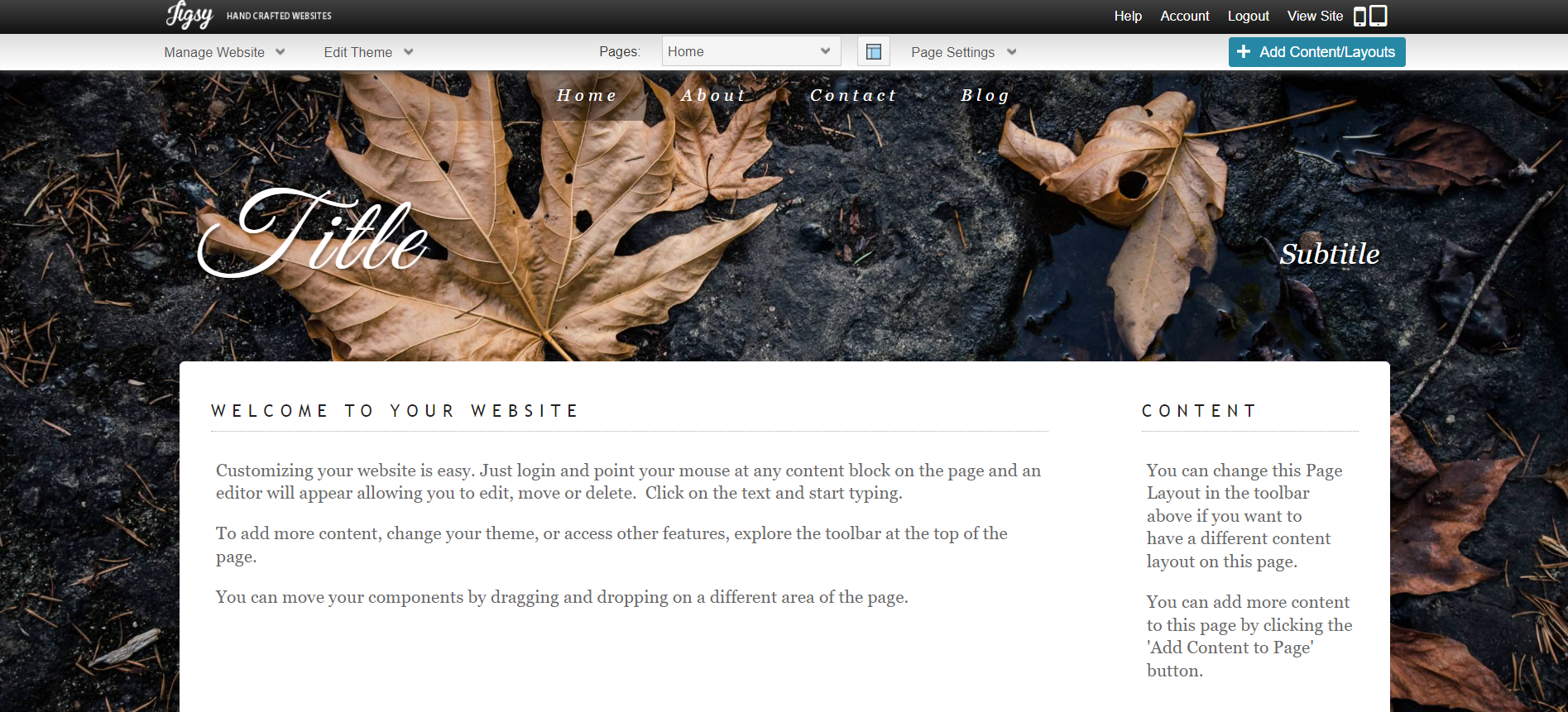
Get a head start on website creation with AI
Create a custom website tailored to your business needs 10X faster with 10Web AI Website Builder!
Ease of use
Ease of useReflects the platform’s overall user-friendliness.Score
Components:
- Learning curve (40%): Quickness and ease of getting started.
- Interface design (30%): Simplicity and intuitiveness of layout.
- User guidance (20%): Quality of tutorials and support.
- Flexibility (10%): Adaptability to various user skills.
 8.0
8.0
 6.5
6.5
🏆 Winner: Webnode
. Scoring an 8.0, Webnode is praised for its straightforward interface and drag-and-drop functionality, making it highly accessible for beginners. Jigsy, with a score of 6.5, offers a versatile platform but falls short in ease of use compared to Webnode. If simplicity and ease of use are your priorities, Webnode is the better choice.
Learning Resources
🏆 Winner: Webnode
. Webnode provides a variety of learning resources, including official documentation, video tutorials, and community forums, ensuring users have ample support. Jigsy, while offering a Wiki, lacks dynamic support and interactive learning opportunities, making Webnode the superior option for learning resources.
For ecommerce
EcommerceMeasures the platform’s effectiveness in supporting online business activities.Score Components:
- Ecommerce themes and templates (20%): Variety and design of templates.
- Product management (25%): Ease of managing and organizing products.
- Payment options (25%): Variety and convenience of payment methods.
- Ecommerce features (20%): Features for managing an ecommerce store.
- Integration (10%): Compatibility with external e-commerce tools and services.
 6.3
6.3
 3.4
3.4
Webnode and Jigsy both offer ecommerce functionalities, but they cater to different needs and levels of complexity. Webnode provides a more robust set of ecommerce tools, making it a better choice for users looking to build a comprehensive online store. Jigsy, while versatile, relies heavily on third-party integrations and lacks the depth of ecommerce features found in Webnode.

|

|
|
|---|---|---|
|
Ecommerce themes and templates |
6.5 |
3.0 |
|
Product page customization |
7.0 |
2.5 |
|
Payment processing and commissions |
6.8 |
4.0 |
|
POS capabilities |
4.0 |
0.0 |
|
Payment gateways |
7.0 |
3.5 |
|
Product numbers |
5.5 |
4.0 |
|
Additional ecommerce features |
6.0 |
3.5 |
Webnode ecommerce features:
- Shipping options
- Payment gateway integrations
- Order management
- Coupons and discounts
Jigsy ecommerce features:
- PayPal integration
- Ecwid product listing
- Ecwid shopping bag
- eBay product listing
Ecommerce themes & templates
Webnode offers ecommerce-specific templates designed for creating online stores, though the exact number of templates available may vary over time. These templates typically come with features such as product showcasing, shopping cart functionality, support for various payment gateways, and customization options. However, users should be mindful of potential limitations such as customization restrictions, feature limitations based on plan tiers, transaction fees, and integration limitations when choosing a template and plan for their ecommerce website on Webnode. Jigsy does not offer ecommerce-specific templates, but it is possible to extend the website’s ecommerce capabilities with Ecwid and eBay product listings within the chosen templates.
Product page customization
Webnode provides users with extensive customization options for product pages, allowing for the creation of visually appealing and informative displays. Through customizable content blocks, product images and galleries, and tailored product descriptions, users can effectively showcase their products. Additionally, features such as customizable call-to-action buttons, product variations, and SEO optimization contribute to a seamless and optimized shopping experience. Jigsy has very limited product page customization possibilities.
Payment processing
Webnode supports various payment gateways, including popular options like PayPal and Stripe, for online transactions. While Webnode itself doesn’t charge commissions on transactions, payment gateways may have their own fee structures. Webnode primarily focuses on facilitating online transactions and doesn’t provide native POS capabilities, although integration with third-party POS solutions may be possible. Jigsy offers only a few payment processing options, lacking a built-in payment gateway within its platform. It exclusively supports PayPal among third-party gateways. Notably, Jigsy doesn’t impose any transaction fees, nor does it provide any point-of-sale (POS) capabilities.
In summary, Webnode is a more comprehensive ecommerce solution compared to Jigsy, offering a wider range of features and customization options. Jigsy may be suitable for simpler ecommerce needs, but its reliance on third-party integrations and limited customization capabilities make it less ideal for more complex online stores.
Website Editors
Website EditorsEvaluates the platforms’ website building and editing capabilities.Score Components:
- Customization tools (40%): Range and power of editing features.
- Editor usability (30%): User experience within the editor.
- Design flexibility (20%): Freedom in layout and design changes.
- Update and maintenance ease (10%): Simplicity of updating and maintaining the site.
 7.3
7.3
 5.7
5.7
🏆
Winner: Webnode
. Webnode, with a score of 7.3, offers a user-friendly drag-and-drop interface with customizable templates, enabling users to easily create professional-looking websites without coding skills. The editor offers responsive design capabilities and multilingual support, catering to diverse audiences across different devices and languages. Built-in features such as SEO tools, e-commerce functionality, and analytics integration empower users to optimize their websites for search engines, sell products online, and track performance metrics effectively. Overall, Webnode provides a comprehensive solution for individuals and businesses to create and manage their online presence efficiently.
Jigsy’s editor, scoring 5.7, boasts a user-friendly interface with drag-and-drop functionality but falls short in terms of modernity and customization capabilities. While it offers various templates and customization options for text, images, and videos, the templates appear outdated. Users can utilize advanced settings for basic SEO, social media integration, and e-commerce features to augment their site’s functionality and visibility. However, its limitations may include a less extensive app market compared to its competitors, potentially limiting advanced functionality or integration with third-party services.
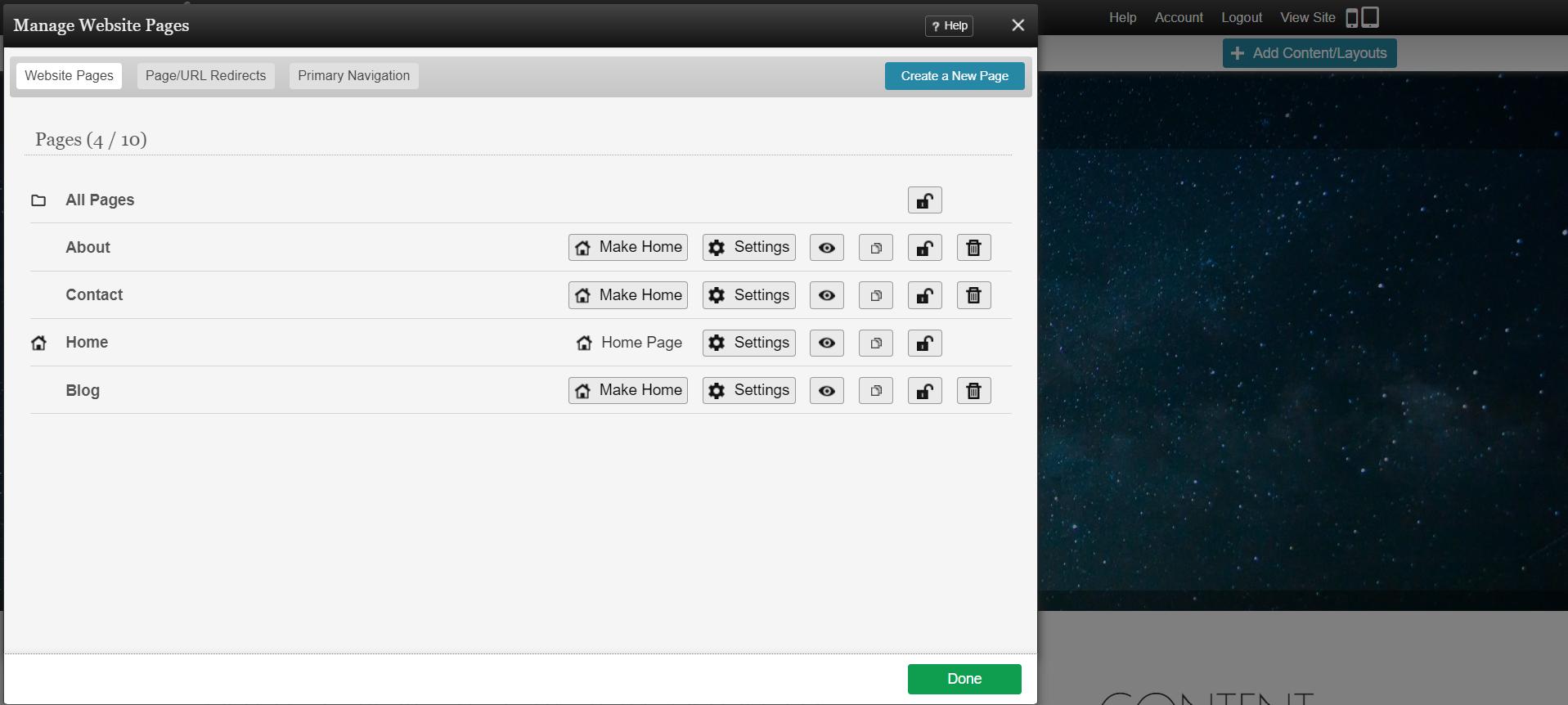
Mobile editor/app
 5.5
5.5
 5.5
5.5

🏆
Winner: Tie
. Both Webnode and Jigsy do not offer dedicated mobile editor apps, but they allow users to make edits through mobile browsers. This functionality comes with certain limitations, making it less convenient compared to platforms with fully-featured mobile apps.
Webnode allows users to edit their websites using the mobile browser version of the editor. While this provides some flexibility for on-the-go adjustments, it may not offer the full range of features available on the desktop version, potentially limiting the editing experience.
Similarly, Jigsy enables users to make small changes using a mobile browser. This can be useful for minor updates and quick fixes, but like Webnode, it may not provide the comprehensive editing capabilities found in a dedicated mobile app.
In summary, both Webnode and Jigsy offer basic mobile editing through browsers, but neither excels in this area. They are equally matched in terms of mobile editing functionality, making this a tie.
Product testing options
Product Testing OptionsAssesses the options for trying out platform features before commitment.Score Components:
- Trial quality (40%): Extent and usefulness of the trial or free version.
- Feature accessibility (30%): How many features are available to test.
- Trial duration (20%): Length of the trial period.
- Ease of transition (10%): Smoothness of moving from trial to paid plans.
 5.3
5.3
 5.3
5.3
Overall Result
:
Tie
. Both Webnode and Jigsy score 5.3 in product testing options, each offering distinct advantages. Webnode provides a free plan with some limitations but allows testing of certain premium features. Jigsy also offers a free plan, but it only allows building, not publishing, a website. However, Jigsy provides a 30-day refundable period to test premium features, which is longer than Webnode’s 15-day money-back guarantee.

|

|
|
|---|---|---|
|
Free Plan |
Yes | Yes (Build only, no publish) |
|
Trial Duration |
No | No |
|
Testing Premium Features |
Some features with free plan | Free plan (build only) + 30-day refundable period |
|
Money-back Guarantee |
15-day money-back guarantee | 30-day money-back guarantee |
Price
PriceLooks at the cost-effectiveness and value for money of each platform.Score Components:
- Plan value (40%): What each pricing tier offers.
- Transparency and clarity (30%): Clearness of pricing structures.
- Flexibility of plans (20%): Range of options to suit different budgets.
- Hidden costs (10%): Additional expenses not included in the plan.
 7.7
7.7
 7.6
7.6
Webnode offers a range of plans with discounts for annual billing, while Jigsy provides more affordable options but does not offer annual billing discounts.

|

|
|
|---|---|---|
|
Free |
No offering at this amount. |
Free ($0/month): 500 MB of hosting storage, allows only to build the website but not to it. |
|
$0-$7 |
LIMITED ($5.50/month): Basic plan, 200 MB storage, attach domain, website statistics, up to 5 form fields, last 30 days backup. This plan allows to manage 1 website with unlimited number of pages. Value for Price: 3.0 |
Starter ($4.99/month): 500 MB of hosting storage, 10 pages, 1 website. Value for Price: 5.0 |
|
$7-$11 |
MINI ($10.00/month): All essentials for a simple website, 1 GB storage, 3 GB bandwidth, website statistics, 1 email account. This plan allows to manage 1 website with unlimited number of pages. Value for Price: 4.5 |
Basic ($9.99/month): 2 GB of hosting storage, 99 pages, 3 websites, use your own domain. Value for Price: 7.0 |
|
$10-$20 |
STANDARD ($16.90/month): For starting an online store, 3 GB storage, 10 GB bandwidth, 20 email accounts, basic store features. This plan allows to manage 1 website with unlimited number of pages. Value for Price: 6.0 |
Premium ($12.99/month): 5 GB of hosting storage, unlimited pages, 10 websites, use your own domain, priority support. Value for Price: 9.0 |
|
$20-$30 |
PROFI ($26.50/month): Professional websites, 7 GB storage, unlimited bandwidth, 100 email accounts, full online store capabilities. This plan allows to manage 1 website with unlimited number of pages. Value for Price: 7.5 |
No offering at this amount. |
|
$30+ |
BUSINESS ($34.90/month): Comprehensive e-commerce, 15 GB storage, unlimited bandwidth, 1000 email accounts, advanced online store features. This plan allows to manage 1 website with unlimited number of pages. Value for Price: 8.5 |
No offering at this amount. |
location. As a result in rare cases the prices displayed here can differ from the ones you see on their
websites.
Hosting quality
Hosting
qualityExamines the reliability and performance of the hosting solutions.Score Components:
- Uptime (40%): Consistency and reliability of website availability.
- Speed (30%): Loading times and performance.
- Bandwidth and storage (20%): Sufficiency of resources provided.
- Data centers (10%): Quality and distribution of hosting infrastructure.
 6.3
6.3
 4.5
4.5
🏆
Winner: Webnode
Webnode offers more transparent and reliable hosting services compared to Jigsy. With options for unlimited bandwidth and automated backups on higher plans, Webnode is better suited for users seeking a dependable hosting solution. Jigsy, while versatile, falls short due to limited storage options and lack of clarity on uptime and data center locations.

|

|
|
|---|---|---|
|
Do they offer hosting? |
Yes, with from 1GB to unlimited bandwidth and automated backups on higher plans |
Yes, hosting offers storage options range from 25MB on the free plan to 5GB on the premium plan |
|
Data Centers: |
Webnode does not disclose the locations of its data centers |
Jigsy does not disclose any information about its data centers |
|
Type of hosting: |
Webnode does not disclose its hosting type |
Cloud based hosting |
|
Uptime: |
99.6% |
Jigsy does not disclose any statistics related to its uptime |
|
Uptime Guarantee: |
No |
No |
Website Speed Optimization
Website Speed OptimizationEvaluates optimization of website loading timesScore Components:
- PageSpeed Score (30%): Google’s score indicating performance optimization.
- Loading Time (30%): The average time until a website is fully interactive.
- Mobile Optimization (15%): Optimization effectiveness for mobile devices.
- Resource Optimization (15%): Optimizing images, scripts, and other heavy resources.
- CDN Usage (10%): Use of CDN to enhance speed across geolocations.
 6.1
6.1
 5.9
5.9
🏆 Winner: Webnode
Both Webnode and Jigsy offer various strategies for optimizing website speed, but Webnode has a slight edge in this area.

|

|
|
|---|---|---|
|
Focus |
Code Minification, Image Optimization, Caching |
CDN, Image Optimization |
|
Performance Tools |
Not specified |
Not specified |
|
Key Strategies |
Code Minification, Image Optimization, Caching |
CDN, Image Optimization |
|
Load Times |
Varies depending on optimization |
Varies widely, depending on optimization |
|
Page Speed Scores Range |
Varies depending on optimization |
Varies widely, depending on optimization |
|
Core Web Vitals Improvement |
Not provided |
Not disclosed |
Webnode employs several strategies to enhance website speed, including code minification, image optimization, and caching. These techniques help reduce the size of web pages and improve load times. However, Webnode does not provide specific information on load times or PageSpeed scores, making it difficult to gauge the exact performance improvements.
Jigsy, on the other hand, focuses on using a Content Delivery Network (CDN) and image optimization to boost website speed. While these strategies are effective, Jigsy also does not provide specific data on load times or PageSpeed scores, which can vary widely depending on the complexity and optimization of the website.
Overall, Webnode’s comprehensive approach to speed optimization gives it a slight advantage over Jigsy, making it a better choice for users who prioritize website performance.
Get a head start on website creation with AI
Create a custom website tailored to your business needs 10X faster with 10Web AI Website Builder!
Plugins and integrations
Plugins and integrationsMeasures the range and effectiveness of additional plugins and integrations.Score Components:
- Variety of options (40%): Range of available add-ons.
- Integration smoothness (30%): Ease of integrating plugins into the site.
- Quality of plugins (20%): Functionality and reliability of the options.
- Custom integration capabilities (10%): Support for custom or third-party integrations.
 6.8
6.8
 5.0
5.0
🏆 Winner: Webnode.
Webnode scores 6.8, offering a broader range of plugins and integrations through Elfsight, which significantly enhance website functionality and user engagement. Jigsy, with a score of 5.0, provides essential integrations but lacks the extensive variety found in Webnode. Webnode’s plugins cover a wide array of applications, including social media, e-commerce, and user interaction tools, making it a more versatile choice for users looking to expand their website’s capabilities.
It is however worth mentioning that Jigsy includes the cost of plugins within their pricing plans, which can be a cost-effective solution for users.

Marketing Features
Design FunctionalitiesRepresents how well each platform allows for creative design and customization of websites.Score Components:
- Template Variety (30%): Range and quality of design templates.
- Customization (30%): Flexibility and options for design alterations.
- User Interface (20%): Ease and intuitiveness of the design process.
- Responsiveness (10%): Adaptability to different devices and screen sizes.
- Innovation (10%): Unique design features and tools.
 5.5
5.5
 3.8
3.8
🏆
Overall Winner: Webnode
. Webnode offers a more comprehensive set of marketing tools, including email marketing and ads and promotions, which are absent in Jigsy. Jigsy’s strengths lie in its SEO and blogging features, but it falls short in other marketing aspects.

|

|
|
|---|---|---|
|
SEO Tools |
✓ |
✓ |
|
Email Marketing |
✓ |
✗ |
|
Blogging |
✓ |
✓ |
|
Social Media Integration |
Yes, through third party integration |
Yes, for blogging purposes |
|
Analytics and Reporting |
Yes |
Limited to Google Analytics |
|
Ads and Promotions |
Yes |
✗ |
Customer Support
Customer supportEvaluates the quality and availability of support options.Score Components:
- Response time (40%): Speed of support responses.
- Support quality (30%): Effectiveness and helpfulness of the support.
- Availability (20%): Range of support channels (phone, chat, email).
- Resource richness (10%): Quality of self-help and educational materials.
 5.3
5.3
 4.3
4.3
🏆 Winner: Webnode
. Comparing Webnode vs Jigsy, Webnode takes the lead in this category with its multilingual support available five days a week. Although it primarily offers email support with a 24-hour response time, premium users benefit from priority phone support. This structured support system ensures that users can get timely assistance, especially those on paid plans.
Jigsy, on the other hand, provides customer support mainly through support tickets for paid users. While it claims to offer email support, user feedback indicates that responses can be inconsistent. The lack of easily accessible communication channels, especially for free plan users, makes Jigsy’s support less reliable compared to Webnode.
Security
SecurityLooks at the platforms’ security measures and data protection.Score Components:
- Data protection (40%): Safeguards for user and customer data.
- SSL and encryption (30%): Implementation of secure connections.
- Compliance (20%): Adherence to industry security standards.
- Regular updates (10%): Frequency of security updates and patches.
 7.7
7.7
 0.0
0.0
🏆
Winner: Webnode
. Webnode offers a comprehensive suite of security features, including HTTPS for all sites, GDPR compliance tools, and a Premium Site Security add-on that includes IP Filters, Form Protection, and Malware Scanning. These measures ensure that users’ websites are secure and compliant with privacy regulations, providing peace of mind for both site owners and visitors.
Jigsy, with a security score of 0.0, does not provide specific information about its security measures. This lack of transparency and detail makes it difficult to assess the platform’s ability to protect user data and secure websites effectively. As a result, Webnode stands out as the more secure option between the two.
AI Capabilities
AI capabilitiesMeasures the effectiveness of AI-driven features and tools.Score Components:
- Automation efficiency (40%): Impact of AI on streamlining processes.
- Personalization (30%): AI-driven customization for users or customers.
- AI-Assisted design (20%): Role of AI in website design and functionality.
- Data analysis (10%): Use of AI in interpreting user data and analytics.
 5.3
5.3
 0.0
0.0

|

|
|
|---|---|---|
|
AI Builder |
Webnode AI builder generates custom websites based on user inputs |
Jigsy does not have AI website builder |
|
AI Ecommerce Features |
|
|
|
AI Content Generation |
|
|
|
Additional AI Features |
|
|
🏆 Winner: Webnode
. Webnode, with a score of 5.3, offers an AI builder that simplifies the website creation process by generating custom websites based on user inputs. This feature makes it easier for users to create websites without needing technical expertise.
Jigsy, on the other hand, does not have any AI capabilities, scoring 0.0 in this category. This makes Webnode the better choice for users looking for AI-assisted website building.
User Management
User ManagementAssesses the platforms’ capabilities in managing user roles, permissions, and accessibility.Score Components:
- Role Customization (40%): Flexibility in creating and defining user roles and
permissions. - Ease of Management (30%): User interface and tools for managing users.
- Access Control (20%): Effectiveness of access control measures for different user
levels. - Scalability (10%): Ability to manage a growing number of users efficiently.
 6.9
6.9
 0.0
0.0
🏆 Winner: Webnode
. When it comes to managing users, Webnode provides a more comprehensive solution compared to Jigsy.
- Webnode allows multiple users to manage and edit a website, with the number of users varying based on the subscription plan. The free version offers limited user access, while premium plans provide more flexibility, including the ability to add multiple users with different roles and permissions.
- Jigsy does not support multiple user editing features, making it less suitable for collaborative website management.
Webnode User Roles and Access Levels:
| Role | Description | Access Highlights |
|---|---|---|
| Website Owner | The individual or entity that owns the Webnode website. | Full access: can modify site structure, design, content, and manage user roles. |
| Administrator | Users with administrative privileges assigned by the website owner. | Nearly full access, including content management, and some settings adjustments. |
| Editor | Users tasked with creating, editing, and publishing content. | Access to add and edit content, blog posts, and pages, but cannot alter design. |
| Contributor | Users who can contribute content but cannot publish it. | Can draft content but need approval from an Editor or Administrator to publish. |
| Viewer/Visitor | Individuals who visit the website without any editing permissions. | Can view the public website and interact through comments or contact forms. |
| E-commerce Manager | Specifically for websites with an e-commerce component, managing products. | Can add, edit, and manage products, orders, and customer interactions. |
Additional Features

|

|
|
|---|---|---|
|
SSL Certificate |
✓ |
X |
|
Custom Domain |
✓ |
✓ |
|
Free Custom Domain Included |
✓ |
✓ |
|
International Domains |
✓ |
✓ |
|
Mobile Responsive |
✓ |
✓ |
|
Page Speed |
✓ |
X |
|
Website Builder Mobile App |
X |
X |
|
Convert a Website To An App |
X |
X |
|
Website Analytics |
✓ |
✓ |
|
Multilingual Sites |
✓ |
✓ |
|
Multiple Users |
✓ |
X |
Webnode vs Jigsy: User Feedback
User feedback on Webnode highlights its ease of use, rapid website creation capabilities, and the wide range of templates available, making it a popular choice for individuals and businesses seeking an intuitive web development platform. While praised for its user-friendly interface and quick setup, including domain purchase and application, some users express a desire for more flexibility and customization options, especially in themes and e-commerce features. Comparatively, it falls short on advanced functionalities such as SEO tools and widgets offered by competitors like WordPress. Customer service experiences vary, with some users facing challenges in getting support for email hosting and analytics integration. Overall, Webnode is celebrated for its ability to accommodate users with little to no coding knowledge, offering an accessible solution for creating professional websites, though it may not fully meet the needs of those requiring more complex site features or dedicated customer support.
Jigsy does not have any reviews on the G2 platform, making it difficult to gauge user satisfaction and experiences. This lack of user feedback means potential users have less information to rely on when considering Jigsy as their website builder of choice. When comparing Webnode vs Jigsy, the absence of user reviews for Jigsy is a significant factor to consider.
The making of this blog
We followed a clear, step-by-step process to write and research this article.
Webnode vs Jigsy: FAQ
Which platform is easier for beginners, Webnode or Jigsy?
Can I use both Webnode and Jigsy for creating an e-commerce site?
How do Webnode and Jigsy compare in terms of design flexibility and template options?
What are the major differences in pricing between Webnode and Jigsy?











